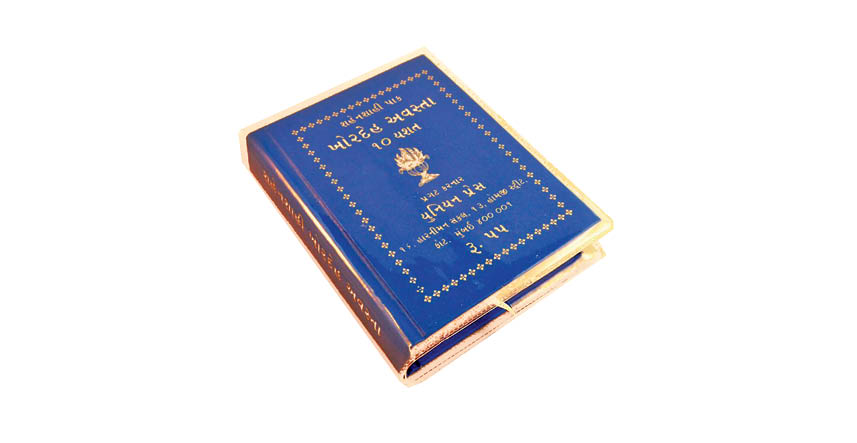Daisy P. Navdar is a teacher by profession and a firm believer in the efficacy of our Manthravani. She is focused on ensuring that the deep significance of our prayers is realized by our youth. She credits her learnings and insights, shared in her articles, to all Zoroastrian priests and scholars whose efforts have contributed towards providing light and wisdom for all Zarthostis.
I invite you to join me as I journey through the wonderful teachings shared in a Khordeh Avesta, which was printed in 1902 – more than a 100 years ago! Authored by Dinbai Sohrabji Engineer, the teachings, stories and notes in this book speak about the various powers of our prayers, while sharing anecdotes of people who have used these prayers and the tremendous achievements that each has accomplished.
As children, one of the most amazing stories we read were the ones which told us how the sea became salty. I have reproduced it here for you to enjoy briefly…
The story begins, surprisingly, by explaining that the sea wasn’t always salty, and that, at one time, it was sweet enough to drink! The salt is all due to a magic millstone that belonged to a great king, and could produce anything that this king wished for – from gold to spices. A thief decides he wants the millstone for himself, so he goes to the King’s palace and is taken on a tour by a kind guard. The thief tricks the guard into telling him where the millstone is hidden, and how the king makes it work, then creeps back later to steal it.
The thief escapes on a boat, and is soon wondering what to wish for. He starts eating a bun, finds that it isn’t salty enough and is inspired to ask the millstone for salt. It works… but the thief falls asleep without telling the millstone to stop. He wakes to a find a heap of salt, weighing down the boat and growing by the minute, but he doesn’t know how to make the millstone stop. Finally, the boat sinks and the thief swims ashore to be captured by the king. As for the millstone, it’s still churning out salt on the ocean floor.
– Author: Rosie Dickins
Surprisingly, the Dinbai’s Khordeh Avesta has another story to tell about why the sea is salty. Dojak or hell is a very real concept in our philosophy. It is said that the sea is salty because it goes through the portals of hell and emerges from there. The tides come twice in 24 hours, when it is low tide – the waters rush downwards into the portals of hell, to cleanse it. That is why the ravans who are in hell get cleansed and can become pure for a few hours. This is designed by Dadar Ahura Mazda to cleanse even those souls who are condemned to hell so that they don’t experience too much difficulty, even in hell. It could be considered as some form of temporary relief from the suffering of the ravan.
The water that returns at high tide is very hot when it comes from Dojak, it is said that it flows into the Zavaherkash Sea. There is a ram with three legs in that sea, and as the incoming tide rises and when the ram sees that water, its gaze cools down and purifies the waters. All the evil and dirt that is accumulated in the water is purified when it comes into contact with this ram.
There is a holy cow near this water created by Ahura Mazda which has a burning fire on its back, she stands witness to this phenomenon. But, despite this entire process of cleansing and purification, the waters remain salty. We can assume that it is salty so that it remains unsuitable for consumption of any living being. Perhaps to save all living things from the mal effects of Dojak and any remnants of its impurities.
However, as we know, the heat of the sun evaporates these same salty waters and thereby purifies the waters which come down upon us as cleansing rain. Look at the marvel of Ahura Mazda!
Many people could feel that this is all just a story but in reality, this is the absolute truth. We have very little knowledge about our own religion as the main scriptures were destroyed or lost in the ravages of time. This is why the faith in our religion is on a decline as it all seems inconsequential. We can recite prayers like a parrot but if we understand the deeper significance of the prayers and the effects these can manifest, then we will have more faith in the recitation of our prayers!
- Holy Vibrations - 18 March2023
- Inter-Connectedness And Gratitude - 13 August2022
- Ye Who Follow Shall Not Fall - 19 March2022
